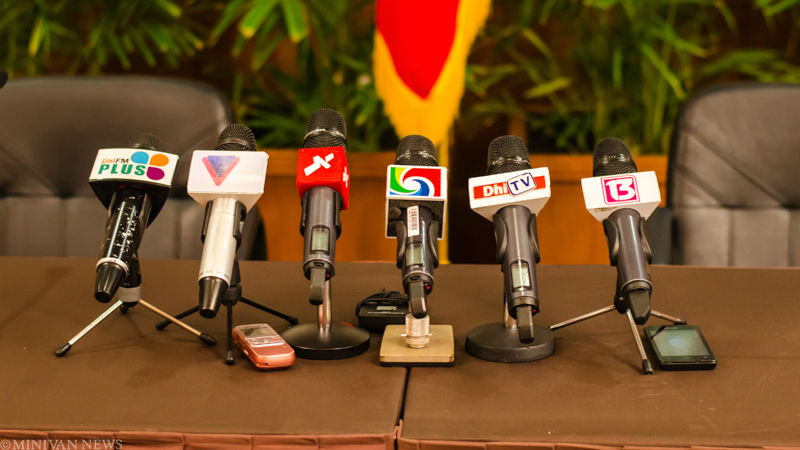Journalists rally against defamation bill
Maldivian journalists have urged the government to reconsider a bill criminalising defamation, expressing grave concern over proposed restrictions on freedom of expression and speech.

28 Mar 2016, 9:00 AM
Maldivian journalists have urged the government to reconsider a bill that criminalises defamation, expressing grave concern over proposed restrictions on press freedom and right to free speech.
The defamation and freedom of expression bill will “prevent journalists and citizens from speaking out over serious accusations of corruption and the integrity of state officials,” ten senior journalists said in a statement today.
The draft law – introduced last week by ruling Progressive Party of Maldives Parliamentary Group leader MP Ahmed Nihan – prescribes hefty fines of between MVR50,000 (US$3,200) and MVR5 million (US$324,000) as penalties for violations. Offenders who fail to pay the court-imposed fine will face a one-year jail term.
Newspapers and websites that publish “defamatory content” may also have their licenses revoked.
Become a member
Get full access to our archive and personalise your experience.
Already a member?
Discussion
No comments yet. Be the first to share your thoughts!
No comments yet. Be the first to join the conversation!
Join the Conversation
Sign in to share your thoughts under an alias and take part in the discussion. Independent journalism thrives on open, respectful debate — your voice matters.




